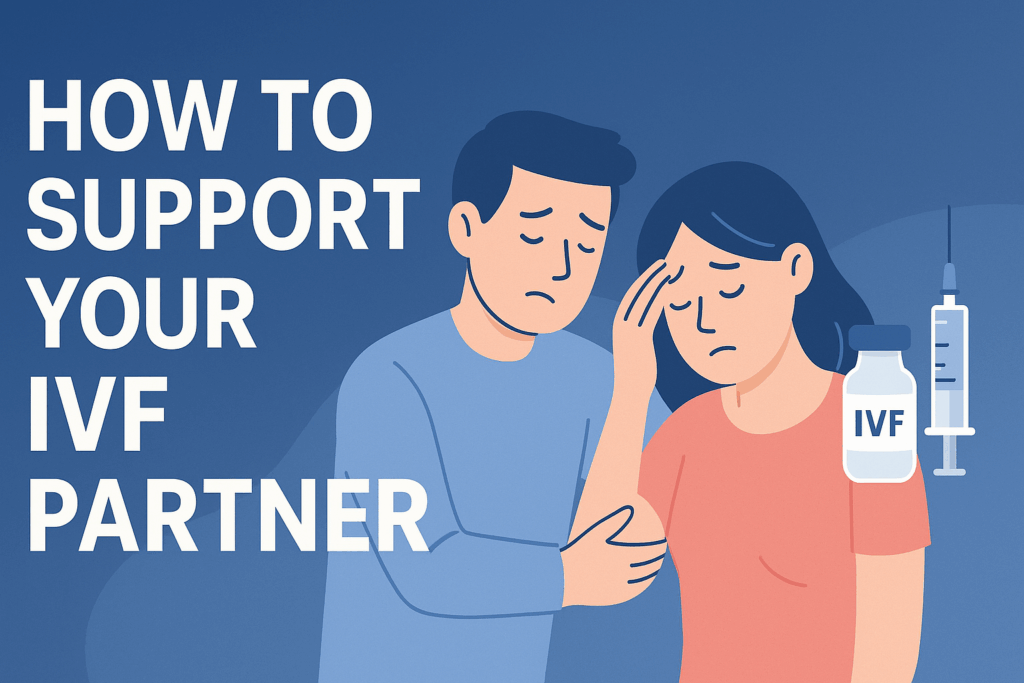
Going through in vitro fertilization (IVF) is a deeply emotional, physical, and psychological journey—one that can test the resilience of even the strongest relationships. As a supportive partner, your role is absolutely vital. While you might not be the one undergoing hormone injections, procedures, or blood tests, your presence, understanding, and emotional support can make all the difference.
Let’s explore how you can be the best support system during the IVF journey—starting with what to do and what to avoid.
✅ Do’s: How to Support Your IVF Partner
1. Educate Yourself About the Process
Understanding what IVF involves—from hormonal injections and egg retrievals to embryo transfers and the dreaded two-week wait—helps you grasp what your partner is experiencing. Read reliable sources, attend doctor’s appointments together, and ask questions. Being informed shows your partner you’re fully invested.
2. Be Emotionally Available
IVF often feels like an emotional rollercoaster. Hormonal changes, disappointment from failed cycles, or even fear of what lies ahead can trigger mood swings, anxiety, and depression. Let your partner vent without trying to “fix” it. Offer comfort, hugs, and simply listen with empathy.
3. Help with Physical Needs
Your partner may be on bed rest after procedures or feel exhausted from medications. Offer to help with chores, prepare nutritious meals, manage appointments, or give injections if they’re okay with it. Small, thoughtful gestures make a big impact.
4. Show Patience and Flexibility
Schedules may shift, last-minute decisions may be made, or moods may change due to medications. Be flexible with your time and energy. Patience is key—not just with the process, but with each other.
5. Celebrate Small Wins
Every step forward in IVF—successful egg retrieval, good embryo growth, or positive feedback from the clinic—is a win worth acknowledging. Celebrate progress with kind words, a sweet gesture, or a quiet evening together.
6. Maintain Open Communication
Ask how they feel, what they need, or how you can help. Sometimes your partner may want to talk, and other times they may need space. Checking in regularly shows you care and respect their emotional boundaries.
7. Take Care of Yourself Too
Supporting someone through IVF can be emotionally draining. Don’t forget your own self-care. Eat well, rest, talk to someone if needed, and stay emotionally balanced so you can offer healthy support without burning out.
❌ Don’ts: What to Avoid During IVF Support
1. Don’t Say “Just Relax” or “It’ll Happen”
These phrases, while well-intentioned, often minimize what your partner is going through. IVF is a clinical, high-stress journey. Instead, say things like, “I know this is tough, but I’m here with you every step.”
2. Don’t Pressure for Positivity
It’s tempting to urge someone to “stay positive,” but forcing optimism can make your partner feel unheard. Validate their emotions—even the tough ones—and let them feel what they need to feel.
3. Don’t Complain About the Cost or Stress
While IVF can be financially and emotionally taxing for both of you, venting about it to your partner—especially during treatment—can add guilt or anxiety. Discuss challenges openly but with sensitivity and solution-focused thinking.
4. Don’t Ignore Your Partner’s Needs After a Negative Result
If the IVF cycle isn’t successful, your partner may feel devastated. Don’t move on too quickly or try to downplay their grief. Let them mourn, cry, or talk as much as they need. Your quiet presence and empathy are enough.
5. Don’t Minimize Their Physical Pain
Hormone injections, bloating, cramps, headaches—these are real and often painful side effects. Avoid comparing or suggesting it’s “not that bad.” Acknowledge their discomfort and offer comfort and support.
6. Don’t Get Caught Up in “Fixing” Everything
You can’t control the outcome of IVF, no matter how much you want to fix it. Be supportive without taking responsibility for the results. Sometimes, the best support is simply being present without offering solutions.
7. Don’t Withdraw Emotionally
Some partners tend to pull away when they don’t know how to help or handle stress. Don’t let silence or distance grow. Even if you feel helpless, staying emotionally connected—even through a hug or a kind word—makes a difference.
❤️ Final Thoughts: You’re a Team
IVF can either strain or strengthen your relationship. By showing up with love, patience, and consistency, you become a rock of support for your partner during one of the most vulnerable times of their life. Remember, you’re in this together. Your compassion, presence, and steady support might just be the greatest source of hope your partner has during the IVF journey.
Whether this cycle leads to parenthood or simply the next step in your shared path, the way you show up for each other now will shape your bond for years to come.
